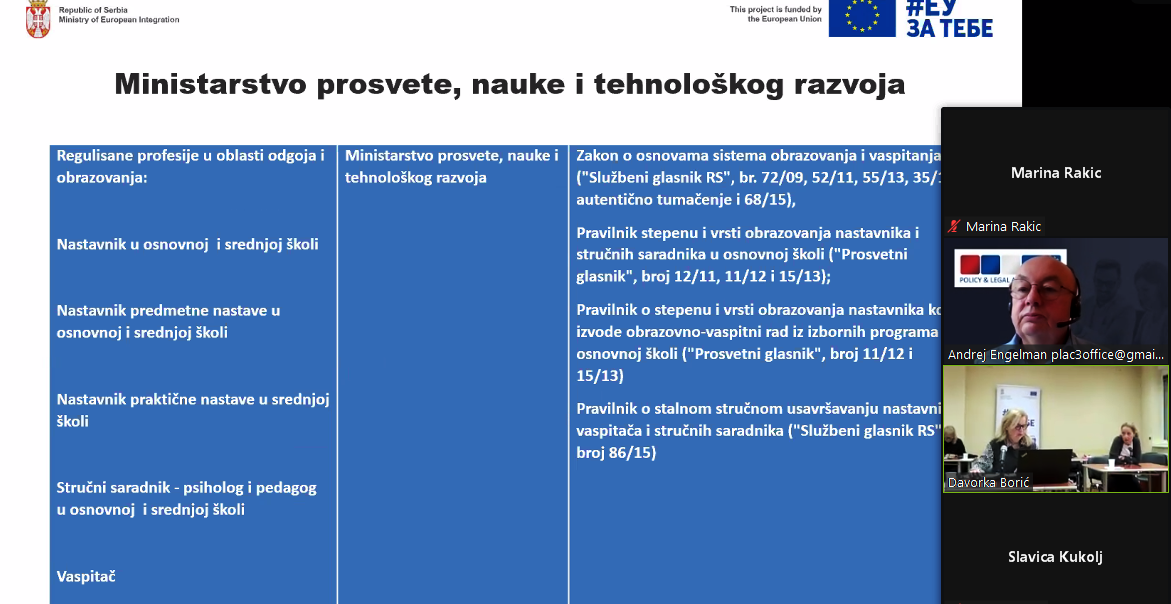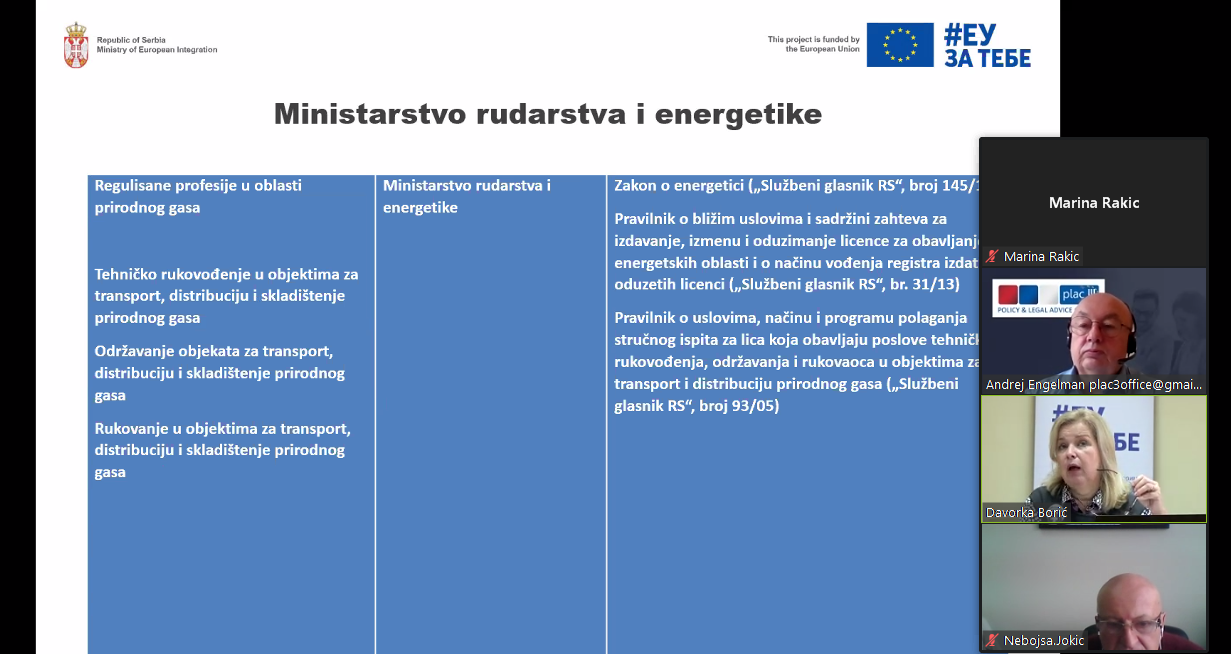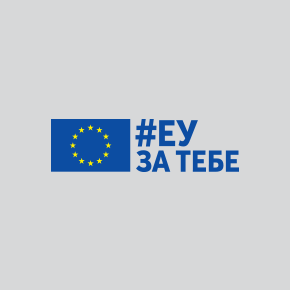As a part of activities related to the Negotiation Chapter 3 (Right to establishment and freedom to provide services), PLAC III project has provided expert assistance in the harmonisation of national legislation on the recognition of professional qualifications with Union acquis. According to the Directive 2005/36 /EC onthe recognition of professional qualifications, seven professions have the status of regulated professions in all EU member states: medical doctors, nurses, dentists, veterinarians, midwives, pharmacists and architects. The amended version of that directive, from 2013, introduced the principle of reciprocity and mutual recognition, as well as a framework for mutual evaluation based on training.
In September 2019, the Republic of Serbia adopted the Law on Regulated Professions and Professional Qualifications, which will enter into force only on the day of accession to the European Union. It regulates the general system of recognition and automatic system of recognition of qualifications. The adoption of this law completed the transposition of relevant Union acquis - Directive 2005/36/EC, its amended version from 2013 and Regulation 1024/2012 on administrative cooperation through the Internal Market Information System.
In the process of further harmonisation, it is necessary to adopt sectorial legislation, as well as to adopt a bylaw with an established list of regulated professions. The PLAC III project expert analysed the preliminary list of regulated professions made in 2017 and after consultations with the competent ministries in several sectors made recommendations for further harmonisation.
Project expert Davorka Borić presented the obligations arising from the Union acquis as well as the draft list of regulated professions of the Republic of Serbia at a workshop held on 14 December 2021. The list refers to the areas under the jurisdiction of the Ministry of Construction, Transport and Infrastructure (31 professions), the Ministry of Health (30 professions), the Ministry of Youth and Sport (13 professions), the Ministry of Justice (6 professions), the Ministry of Tourism, Trade and Telecommunications (7 professions), the Ministry of Agriculture, Forestry and Water Management (three professions), the Ministry of Culture and Information (14 professions), the Ministry of Interior (7 professions), the Ministry of Mining and Energy (27 professions), the Ministry of Education, Science and Technological Development (five professions)and the Ministry of Finance (two professions).
The proposed solutions were discussed in an exchange of views with representatives of respective ministries who attended the workshop held through the Zoom platform.
(Cover photo: Audiovisual Service, European Commission)


